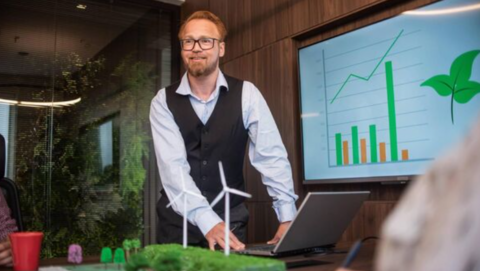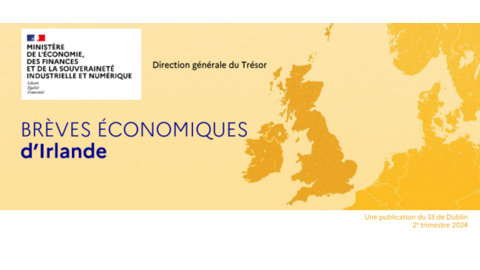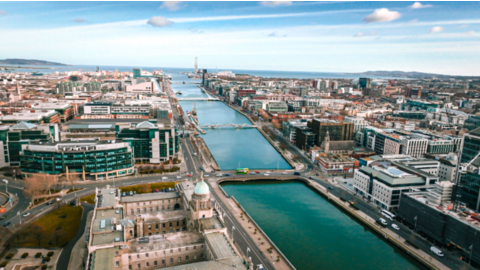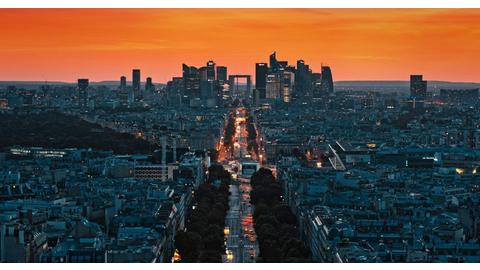Analyses & Studies
Ireland can lead as major provider of renewable energy

While a small nation, Ireland can be a major European provider of renewable, sustainable energy, says Robert Costello of PwC.
Robert Costello, Corporate Finance Partner & Energy Transition Lead, PwC, says Ireland is ideally placed to play a lead role in Europe's renewable and sustainable energy ambitions
The global energy transition is driven by the urgent need to address climate change. By shifting from fossil-based energy systems to renewable energy sources, we can significantly reduce greenhouse gas emissions and limit global warming.
This involves a collective effort to create a greener, healthier and more resilient world for current and future generations. The challenge is immense, but we are already seeing Governments, businesses and investors increasingly focused on sustainability and decarbonisation to tackle the transition.
As a small country on the edge of Europe, some argue that Ireland’s ability to affect change as part of the energy transition is limited. However, as a nation, not only do we have an opportunity to deliver a more sustainable, healthier future for our population, we can lead as a major provider of renewable and sustainable energy resources to other countries, and to benefit from this economically as a result.
The energy transition involves the use of many technologies to decarbonise. From the renewable generation possibilities of offshore and onshore wind and solar to smart grids and hybrid grids that will transmit our energy in an efficient way to interconnections between Ireland, the UK and Europe to export our energy, to batteries that can store energy from different sources and discharge it when needed.
In our homes, we will retrofit to reduce our energy usage and install heat pumps to electrify our heating systems. We will drive electric vehicles, whilst public transport and shared mobility solutions will be much more prevalent.
Opportunities will exist for farming communities in areas such as the provision of biomethane and initiatives to decarbonise the agricultural sector. In the longer term there will also be opportunities for Ireland to lead on the harder to decarbonise sectors, for example through the provision of sustainable aviation fuel and green hydrogen for industry and long distance transport.
Already, we are seeing Irish companies and Irish people leading the way in the energy transition. Our recent PwC Climate Tech report identified 36 Irish companies involved in the provision of climate change solutions in Ireland and abroad and we have leading professionals in the renewables sector globally.
As we progress the energy transition, more jobs will be created for technical, design and engineering, policy and regulation, financial and investment and communication skills.
The construction industry in particular will see an increase in activity as we build out our new infrastructure and there will be new types of operational and maintenance jobs across the country enabling people to work in well-paid roles in areas of Ireland that may have had fewer job opportunities in the past.
Challenges
To really benefit from the energy transition though, we have to overcome challenges around policy, people and supply chain and accelerate our build out of offshore wind generation. And to do this we will have to take the following steps:
Step 1: Plan the offshore wind programme with the ‘end’ in mind
Our offshore wind projects will be led by the Government through the ‘plan led’ approach. This is a programme of projects for both offshore wind generation and grid that will extend around the east, south and west coast of Ireland.
Like any well-planned programme, you begin with the end in mind and work backwards to identify the gaps and prioritise solving the most critical items first. Doing this will give a masterplan for offshore grid and wind projects with clear dates and timelines that will attract interest in investment in the projects, the people and the supply chain to deliver.
Step 2: Drive European Policy on interconnection
Ireland has the potential to generate up to 50GWs of renewable energy, while Ireland’s peak demand estimate is 8-10GWs of capacity. So to derive further benefit for our population we need to look for more customers for our excess supply. This will mainly come through export via grid connections into Europe. To enable this, our Government needs to take a lead role in driving European policy for a European master plan for interconnection. As an island on the periphery of the continent, and notwithstanding our huge wind resource, there’s a risk that we get left behind if we do not get this right.
Step 3: Eliminate inefficiencies and reduce risk
There are currently significant uncertainties and structural risks that pose a threat to deliver our offshore wind ambition. They include uncertainty on grid infrastructure and access to grid, ports and supply chain challenges and routes to market -- the means to generate revenue. These structural risks and inefficiencies are increasing the costs, creating delays, and making projects less viable, to the extent they might not go ahead at all. These risks and uncertainties must be addressed as a matter of urgency.
Step 4: Foster innovation and invest in skills
Ireland is a country of highly skilled people. For years we have provided expertise in financial services, medicine, pharmaceuticals and tech. We now have an opportunity to foster innovation, develop skills and support jobs in the renewables sector. This will be needed if we are to fully reap the economic benefits of the sector into the future.
Step 5: Strong leadership
We will have a general election coming up in the next 11 months. High on the agenda will be housing, health and immigration. These are important issues that need to be addressed. But so too is Climate Change.
If our population can realise the importance of renewable energy as well as the opportunity for the country, it should be one of the highest issues on the agenda for the next Government.
And that will require leadership and accountability at the Toiseach’s Department to ensure silos and competing challenges around decision making and governance are addressed.
Energy Transition is the next industrial revolution and we have an opportunity to create world-changing jobs for our young people; they will implement the transition so the economy and society can thrive. As an island off Europe, on the Atlantic, we are endowed with enormous natural and human resources just waiting to be tapped.


